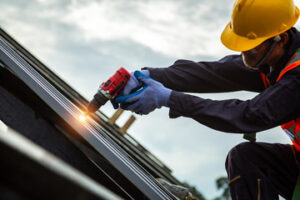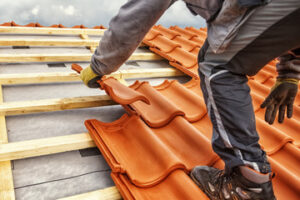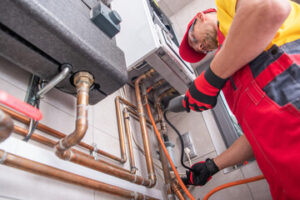Link Juice is the ranking power of a webpage, passed on by the number and quality of its backlinks. This can boost search engine rankings and improve online visibility.

Effective internal linking is key to leveraging your link juice. Consider it like pouring a glass of water into each one of your pages, with the stronger pages receiving more water and the weaker ones getting a smaller amount. Click Here to learn more.
Link juice, also called link equity, is the value that a page receives from external links. This value, which influences SEO rankings, is determined by a variety of factors. Some of these factors include domain authority, page authority, and contextual relevance.
To improve search engine ranking, a website needs to have quality backlinks from authoritative websites. These can be acquired through a variety of methods, including guest blogging, social media marketing, and press release distribution. However, the most effective way to get the most out of link juice is through internal linking. This method involves strategically distributing the link juice among pages on your site, so that each page can benefit from the highest possible rankings.
Backlinks are an important part of seo, but they can also be harmful if used incorrectly. Some types of links can cause search engines to penalize your site, lowering its visibility and organic traffic. Others, such as nofollow links, can pass no SEO value. It is important to use quality backlinks that are relevant to your niche and provide value to your readers.
The number of outgoing links on a page also influences its link juice. For example, links buried in the footer tend to carry less weight than those in the content. In addition, links with keyword exact matches are less likely to pass link juice than those that use synonyms or latent semantic keywords (LSI).
One often overlooked source of link juice is a website’s own content. In a quest for high-value backlinks, many marketers overlook pools of link juice concentrated on their own site’s most popular pages. These pages may contain valuable information or link back to other important pages on the site. This can help them rank higher in search results for related keywords.
To maximize the value of link juice, it is important to create a well-structured internal linking system. This should include both external and internal links, and should be based on contextual relevance. It is also important to use links that are relevant to your target audience, rather than generic keywords. For example, a link to a page about running shoes will pass more link juice than a link to a page about sports.
Domain Authority
Domain authority (DA) is an important metric for SEO professionals because it predicts a website’s ability to rank in search engine results pages (SERPs). It is based on a variety of factors, including the number and quality of inbound links. The higher the DA, the more likely the site is to rank well in SERPs. DA can be calculated using tools like Moz’s DA checker.
A domain’s DA score is determined by the number of high-quality, relevant backlinks it has and how quickly these links are being updated. It also takes into account the quality of the linking website and its topical relevance. For example, a link from a site that focuses on sports equipment will have more value than one from a website about dyslexia. This is why it’s important to focus on creating high-quality content that is both informative and engaging, as well as ensuring that all of your inbound links are from reputable sites with similar topics.
The DA score is not a direct indicator of a website’s ranking, but it does provide an indication of how well the site will perform in the long term. It is also an important metric for comparing competitors’ websites. A high DA score can help a website rank higher in search engine result pages, which can increase traffic and improve conversions.
Domains are the unique addresses on the internet where a website lives. A domain name can be purchased from a registrar and used to host a website, email server, and other services. The domain name is also the unique address where search engines can find and index web pages.
While many companies invest in improving their DA, they often overlook the importance of creating strong internal links. These links connect webpages within a website and allow search engines to crawl and index them more efficiently. When these links are created properly, they can also pass on SEO value to other pages in the site.
A proper internal linking strategy can also help with SEO by establishing a content hierarchy and structure that signals to search engines which pages are more important. Moreover, this strategy can help with user navigation and reduce bounce rates by keeping users on your website longer. It’s also important to keep in mind that no tool can accurately calculate the amount of juice a page passes to other pages, as this is a complex process influenced by many factors. However, using a link juice checker can be a great way to get an overview of your site’s internal linking structure and identify any areas for improvement.
Page Authority
Aside from backlinks, page authority is one of the most important metrics to consider when measuring a webpage’s ranking potential. It’s the measurement of a page’s ability to rank highly in search engine results pages (SERPs) and is based on various factors, including a website’s domain authority, link quality, and topical relevance. Page authority is particularly valuable when attempting to boost a specific page’s visibility and rankings, as it allows marketers to gauge the effectiveness of their SEO strategies and tactics.
While Page Authority is a useful tool, it’s important to keep in mind that it only measures the potential of an individual web page and does not necessarily predict how well a site will perform overall. For this reason, it’s crucial to use it as a benchmark when evaluating your SEO efforts and comparing the performance of your competitors’ sites.
To improve a page’s ranking potential, you need to build quality links from high-authority sources that are relevant to your niche. However, it’s equally as important to optimize on-page factors such as title tags and meta descriptions. Aside from this, implementing a mobile-friendly site and using descriptive anchor text are additional ways to enhance a webpage’s rankability.
Another way to boost a website’s page authority is to make it easy for visitors and search engines to share content from your site with others. This includes incorporating social sharing icons, a sitemap, and linking to other related content on your website. Lastly, ensure that your content is high-quality and contains valuable information to attract users and search engines alike.
Although it’s no longer possible to obtain a PageRank score, there are numerous tools available that provide insights into the ranking potential of your website’s pages. These include Moz’s Page Authority and Ahrefs’ URL Rating, both of which use metrics that are still relevant to SEO. By understanding the role that these metrics play and implementing them into your internal linking strategy, you can increase the visibility of your most important pages on the web.
In the world of SEO, link juice is essentially website cred. When a reputable site refers to your page, it signals to Google that your content is valuable and worth promoting. This is why it’s so important to prioritize high-authority links, use descriptive anchor text, avoid overlinking, and address orphaned pages – all of which can help improve your site’s page authority.
Thematic Relevance
Thematic relevance is a key factor for SEO success. It determines the value of a page and its ranking in search results. Thematic relevance is based on the topic of the page and its relationship to other pages within the site. For example, a link from an article on sports cars to an article about running shoes is likely to carry more weight than a link from a blog on psychology or dyslexia. A higher thematic relevance score means that a page is more likely to rank higher in search results for its target keyword.
Using this information, it’s possible to optimize a website for better SEO. For example, you can add internal links to other relevant pages to increase their ranking in search engine results pages (SERPs). You can also use semantic SEO to improve the ranking of your homepage and other important pages. Link relevance is just one aspect of SEO, however, so you should combine it with other strategies to achieve the best results.
Many marketers are so focused on obtaining high-quality backlinks that they overlook the valuable link juice already inside their own websites. By optimizing their internal linking strategy, they can tap into this reservoir of authority and boost their rankings. Here’s how to do it:
The main way to get more link juice is by obtaining high-quality backlinks from reputable sources. This can be done through a variety of tactics, including guest blogging and earning mentions in online publications. In addition, it’s important to use internal linking to distribute the link juice throughout the website. Ideally, the homepage should receive the most link juice, while other pages should receive proportionally less.
In addition to thematic relevance, the quality of the page and its content is also an important factor in SEO. This includes the use of keywords, a clean code structure, and proper markup. Moreover, it’s important to update your site regularly to keep it fresh and avoid penalties from Google.
While the term “link juice” may be outdated, it’s still used by some fringe SEO practitioners to describe their tactics. In a recent video, Google’s John Mueller dismissed this idea as “snake oil,” but it’s not clear whether he was referring to the concept of link juice or specific tactics that might be considered snake oil.



